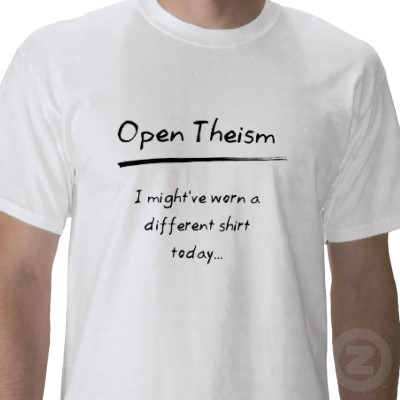McCormack begins his essay with a brief overview of the relation of God to the world as understood in classical and process theism. Classical theism understands God as a transcendent being complete and perfect in himself and standing over against the world, thus maintaining a very robust Creator-creature distinction. Process theism, by contrast, envisages continuity between the being of God and the being of the world, so that God is deeply affected by everything that happens in the world. God is not simply responsive to the world, but “the being of God grows, develops, changes, evolves through the history of his interactions with the world.”[1] Yet McCormack suggests that which is common to these two views is more important than their differences:
In spite of these rather significant differences, what classical theism and process theism have in common is far more important. What they have in common, in the first place, is the belief that the “order of knowing” runs in the opposite direction to the “order of being.” That is to say, though the being of God is above and prior to the being of all else that exists (and therefore first in the “order of being”), our knowledge of God proceeds from a prior knowledge of some aspect or aspects of creaturely reality (and therefore the knowledge of God follows knowledge of the self or the world in the “order of knowing”). … Thus epistemology controls and determines divine ontology. … Both [classical and process theism] are exercises in metaphysics because both take up a starting point “from below” in some creaturely reality or magnitude and proceed through a process of inferential reasoning to establish the nature of divine reality. And this means…that both claim to know what God is before a consideration of Christology.[2]
Having laid this foundation McCormack goes on to define open theism as a “highly aggressive, missionary movement in theology which seeks to convert the evangelical churches to what it alleges to be a more “biblical” understanding of God.” Open theism has to do with God’s interaction with the world, and has a primary concern to protect human libertarian freedom, and derivatively, provide an explanation for the existence and persistence of evil. God exists in a reciprocal and open relation to the world and is responsive to human activity. The biblical grounding for this view is twofold. First, the open theists operate with a hermeneutic based on 1 John 4:16: “The statement God is love is as close as the Bible comes to giving us a definition of the divine reality.”[3]
What is happening here is that a definition of a term devised originally for speaking of love on the plane of human relations is being applied in a rather straightforward fashion to the being of God—without any sense that an illegitimate anthropopathizing of God might be taking place. … the Johannine axiom—and the meaning assigned to it—provides the open theists with (1) a criterion of selectivity for identifying passages in the Old Testament which are supportive of their claims and (2) a hermeneutical key for ordering these passages to other, more problematic passages.[4]
Second, McCormack notes that the open theists’ biblical case is largely build on passages in the Old Testament, and that “virtually the whole of the open theistic understanding of God has been fully elaborated on the basis of the Old Testament before the incarnation comes into view.”[5] He observes that both open theists and classical theists tend to harmonise the various texts of the Old Testament with respect to this issue, reading texts problematic to their view in light of other supposedly “more central” texts. McCormack’s own hermeneutical approach is of interest. He wants to allow Old Testament tensions to stand because (a) Scripture is not the work of a single author but a record of revelation received, and so somewhat ambiguous, especially in the Old Testament, which (b) requires interpretation in the light of Jesus Christ in whom alone God’s ultimate intentions are made known.[6] But the open theists’ treatment of the New Testament is largely predicated on a reading of Jesus’ interactions with others and his death on the cross as illustrative of the nature and being of God. McCormack is concerned, once more, that the open theists have applied their “metaphysic of love” so that Jesus is introduced only to validate a conception of God that has been worked out without reference to him.[7]
[1] McCormack, Bruce L., “The Actuality of God: Karl Barth in Conversation with Open Theism,” in Engaging the Doctrine of God: Contemporary Protestant Responses, ed. McCormack, B. L., (Grand Rapids: Baker, 2008), 187.
[2] McCormack, “Actuality of God,” 187-188, original emphasis.
[3] McCormack, “Actuality of God,” 192, citing Richard Rice in Pinnock, C., The Openness of God, 16.
[4] McCormack, “Actuality of God,” 192, 193.
[5] McCormack, “Actuality of God,” 191, original emphasis.
[6] McCormack, “Actuality of God,” 195.
[7] McCormack, “Actuality of God,” 197.

 Alex Jensen from Murdoch University was one of my supervisors for my doctoral studies and I owe him a great debt of gratitude for his friendship, support and expertise. I am pleased, therefore, to bring his new book to your attention: Divine Providence and Human Agency: Trinity, Creation and Freedom published by
Alex Jensen from Murdoch University was one of my supervisors for my doctoral studies and I owe him a great debt of gratitude for his friendship, support and expertise. I am pleased, therefore, to bring his new book to your attention: Divine Providence and Human Agency: Trinity, Creation and Freedom published by